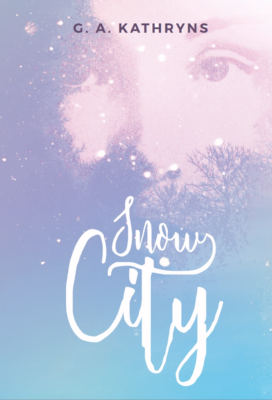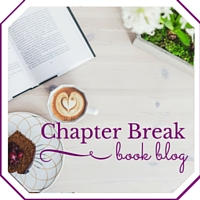 SNOW CITY by G. A. Kathryns
SNOW CITY by G. A. Kathryns
G. A. Kathryns is an award-winning author of novels and short stories. Her latest release SNOW CITY is a novel of hope and magical realism.
SNOW CITY is a dreamlike journey into the life of a woman who has given up on a dystopian reality and fabricated her idea of a perfect dream world. And then one day she wakes up in that fantasy world…
SYNOPSIS
Her name is Echo Japonica, and she lives in Snow City. But she was not always Echo, and she did not always live in Snow City. Somewhere else, she was someone else, and it was to Snow City that she fled in order to escape a place and a self that had at last become intolerable.
For Snow City is a dream — Echo’s dream — of a better place, an idealized place, a place of both anonymity and fulfillment. It is, for Echo, a haven of peace, a refuge, a sanctuary.
But Snow City remains, nonetheless, a dream, and dreams, being such fragile things, can so easily shade into nightmare…
Author Interview with G.A. Kathryns, author of Snow City
Describe your writing process. Do you outline, plot and plan, or is your writing more organic?
In the beginning, I outlined obsessively, even though I knew that the storyline would inevitably diverge from my plans. Now I sketch out the overall movement of the story, make character notes, and work from a more rudimentary outline. Usually, by the end of any given chapter, I
will have made notations at the beginning of the next chapter as to how the progression of scenes and interactions will proceed.
What are some books or authors that you would recommend to our readers?
I don’t know of any authors who write like I do, or deal with the same themes, so I can’t be like Amazon and give a list of reading recommendations for “books similar to this”. I can, though, talk about what I find myself reading for personal enjoyment.
I just finished the latest in the Dave Robicheaux series by James Lee Burke. He can be tough to take at times, but he tells a good yarn. All his novels are good
I also enjoyed the first two “Laundry” books by Charles Stross, though I lost interest in the direction he took with the subsequent volumes.
Stephen King, to my surprise, has become something of a favorite for me: from the first paragraph on, it’s obvious that this is a master storyteller who will not leave you hanging or let you down by copping out at the end of the book. I’m less interested in his horror than his works that lean more toward what I might call the uncanny or the weird.
For science fiction, I like Jack McDevitt: he actually deals with character, and trades in “what if” concepts, rather than heavy-handedly citing chapter and verse out of physics books like many of the Big Names. Stanislaw Lem is very good, too, and is perhaps the only speculative fiction writer who really grapples with the difficulties and paradoxes inherent in contact with alien civilizations. Unfortunately, he’s very dry (though that might just be the translation).
James Ellroy is a harsh but good crime writer. He gets too caustic for me in his alternate future series, but THE BLACK DAHLIA, THE BIG NOWHERE, L.A. CONFIDENTIAL, and WHITE JAZZ are classics.
Speaking of classics, I have to mention Thomas Pynchon’s GRAVITY’S RAINBOW, which I would name as perhaps the greatest novel of the twentieth century (sorry, Mr. Joyce). I’ve read it several times, and I always find something new in it. I also take great comfort in the depth and complexity of Thomas Mann’s DOCTOR FAUSTUS. It’s a dense read, but very worthwhile, particularly in our troubled times.
Tell us what you enjoy most about writing magical realism.
There is a refreshing openness to be had in creating a world that, as the artist James Christensen put it, lies “a little to the left of center”. Setting the unreal in the world of the real allows freedom, but it is a freedom that must not be abused, lest the whole construct degenerate into wish-fulfillment fantasy.
What have you found to be most challenging about writing magical realism?
Keeping the unreal firmly anchored in reality. Marianne Moore put it well: “Imaginary gardens with real toads in them”.
Have you been able to incorporate your previous experience in [jobs/education] in your writing?
Any author will use his or her real world experiences as grist for the mill. In SNOW CITY, I drew heavily upon my experiences as a working musician with a steady, fairly demanding, restaurant gig.
Do you identify with your main character?
All authors must identify in one way or another with their main characters. In fact, all characters possess, to one degree or another, a little bit of the author who created them. Characters are projections, like magical personalities, of the author.
Is there anything you would like people to take away from your book?
Throughout my life, I have seen this world grow ever more harsh, unforgiving, and mean-spirited. The events of 9/11 nearly broke me, as they seemed to indicate the ultimate triumph of utter madness and uncaring destruction. I wrote SNOW CITY in the hopes of bringing the
reader a vision of something better, more noble; something that depicts loyalty, faith between people, and the hope that heartlessness is an aberration, not a given.
What is your favorite line from your book?
The one that always makes me chuckle inwardly (but that will make no sense at all out of context): “It is something like a passacaglia.”
What do you like to do when you’re not writing?
I read, listen to music, practice guitar, and work out on the heavy bag.
PROLOGUE
Sometimes one has to dream very hard to keep oneself sane. And that is what I did, hiding from the world — from the terror and the bombings and the deliberately engineered famines and droughts, from the withering shreds of civility and the surging outbursts of impersonal violence — groping blindly through my shadowy, nightmare-haunted fantasies until I came upon Snow City, my dream, my creation. And it was perfect: all bright and full of color, surrounded by pristine mountains, watered by a clear river, touched with the magic of kind people and the pure air I had always longed to breathe, unsullied by the filth and despair of my physical existence.
And as the days wore on and the horror and atrocity about me increased, I turned again and again to my fantasy world, seeking shelter, seeking respite, living secretly, within my heart, an alternate, fabricated life in my little bastion of sanity and perfection.
Until one morning, I awakened to discover that what had been the real world had turned into a kind of faded delirium, and that I — somehow graced with an impossible rebirth and a new identity — was now living in Snow City.
In it.
About the Author
G.A. Kathryns grew up on the West Coast and later on moved to the drier and higher realms of the high plains. She currently makes her home in the Denver metro area where she shares the company of a spouse and two small dogs.
Along with SNOW CITY, she has written a Southern Gothic themed title, THE BORDERS OF LIFE (soon to be reissued in a revised, corrected, and updated version), several pedagogical works devoted to playing the harp, a number of short stories, and a collection of dark fiction.
To learn more, go to http://www.gakathryns.com/home.html
Amazon: https://www.amazon.com/Snow-City-G-Kathryns-ebook/dp/B01N5YA5KO
Goodreads: https://www.goodreads.com/book/show/34232153-snow-city
Facebook: https://www.facebook.com/gakathrynshome/
Note: Some posts may contain affiliate links. Should you choose to purchase a product, we will receive a small commission for the sale at no additional cost to you. Chapter Break is a participant in the Amazon Services LLC Associates Program, an affiliate advertising program designed to provide a means for sites to earn advertising fees by advertising and linking to Amazon.com.



